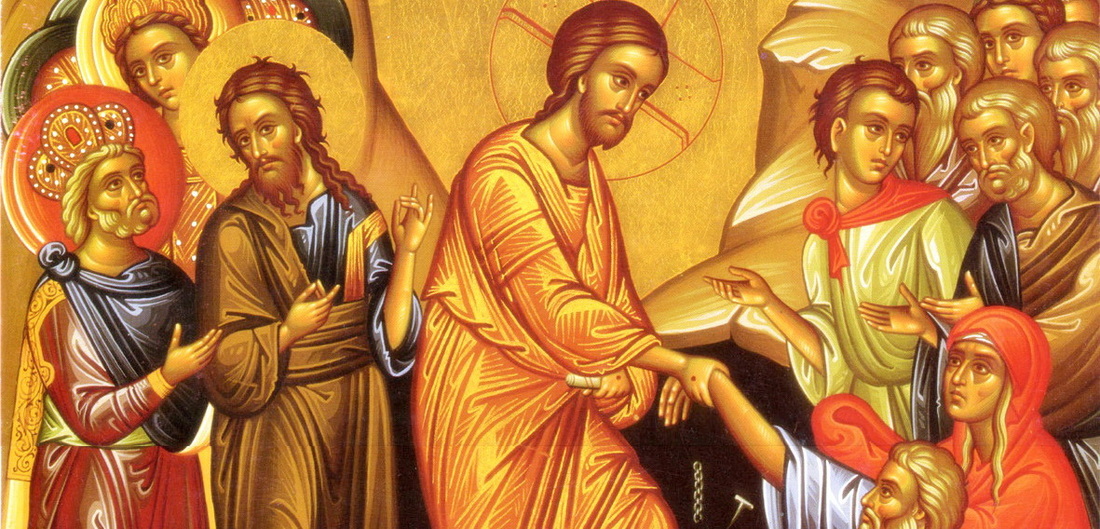|
By Fr. Paul Martin The old saying goes, "The devil is in the details." But is this true? Certainly not when it comes to the Gospel. For a close look at Holy Scripture always reveals something very much other than the devil. This is because God speaks to us in the small print as well as the "big picture." He wants us to probe His Word. He wants us to be sensitive to what is written in both large and small letters. "For if you forgive men their trespasses, your heavenly Father will also forgive you. But if you do not forgive men their trespasses, neither will your Father forgive your trespasses." This is certainly one detail that warrants our attention. How good it is to give God praise ("Hallowed be Thy Name!"), affirm His will ("Thy will be done!"), ask for "our daily bread" and deliverance from "the evil one." All of this is very important. But forgiveness is in some sense most important of all, because Jesus Himself stresses it: because in order to be forgiven our trespasses, as He says, we must forgive others. It is one thing we must do. As the Blessed Augustine says, "In no other petition do we pray in such a manner as to make a kind of covenant with the Lord, for we say, 'Forgive us as we also forgive'; if we default in this covenant, the whole petition is fruitless."
In other words, we might pray "ceaselessly," with no change in us whatsoever, if we do not forgive. God does not abide in us, unless we forgive. God does not forgive us, unless we forgive. If we do not forgive, this covenant made with the Lord is broken. Consider this: if God is love, as St. John the Evangelist says, He is mercy. And if He is mercy, He is forgiveness. So if we are to be like God, we must not only love but become vessels of forgiveness. Forgiveness, then, is key. It is the first step on the road to repentance. This is why we begin Great Lent with the Vespers of Forgiveness and the Rite of Forgiveness. Forgiveness Sunday did much to bring me into the fold. Seeing an entire congregation come forward, to ask forgiveness of one another, convinced me of the truth of our Holy Orthodox faith. As a volunteer chaplain, I serve the Forgiveness Rite at a maximum security prison in Indiana. At this place of utter darkness, I am constantly finding Christ in the men of our brotherhood. More than most, these men are aware of the need for forgiveness – from God, from society, from each other, from us. They long for it. They know how crucial it is to forgive, how necessary it is to be forgiven. Years ago, one of the men who had been an observer for quite some time – a "lifer", a burly man with a "show me" attitude and an air of silent contempt – rushed up to me after the Forgiveness service. He said he had considered all the other faith options represented at the prison and remained unconvinced, but this was different. This was real. This was the True Faith. He was now a believer. He asked to join our catechumens, was eventually baptized, and since has become a leader of our brotherhood as well as an inspiration to me. Forgiveness is powerful. When we forgive and ask forgiveness of one another, we are demonstrating God's mercy and spreading the Good News. In fact, being a forgiving people may be the best kind of evangelism. If we would practice forgiveness from the heart wouldn't our communities become beacons to the world? Wouldn't our families and parishes deepen spiritually? Wouldn't the Kingdom of God come into our midst? Let's begin this great season of repentance by practicing forgiveness. Let’s put aside all earthly cares–wounded egos, hurts, resentments, disagreements – and begin anew, so that Great Lent 2012 may be the best ever. So that we may please God, shame the devil, and defeat the spirit of division within our families and our congregations. So that, with the coming of Pascha, we may look inside of ourselves and find the Resurrected Christ revealed, reflected in our pure hearts, all of our trespasses forgiven, ever joyful. Amen! |
Topics
All
|


 RSS Feed
RSS Feed
